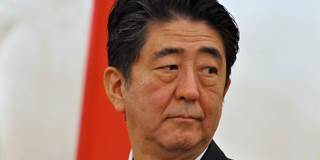At the recent G-7 summit in Germany, Japan broke with tradition, no longer content to sit on the diplomatic sidelines. At long last, Japan is constructing a foreign policy that reflects not only the global weight of its economy, but also the impact of faraway events on its national security.
TOKYO – Japanese Prime Minister Shinzo Abe has decided to extend the Diet’s current session for 95 days, until September 27 – making for the longest continuous session in the Japanese parliament’s postwar history. The reason is clear: Abe is determined to pass a set of national security bills allowing a reinterpretation of Japan’s constitution that enables the country to play a greater role not only in enhancing its own security, but also in advancing world peace.

TOKYO – Japanese Prime Minister Shinzo Abe has decided to extend the Diet’s current session for 95 days, until September 27 – making for the longest continuous session in the Japanese parliament’s postwar history. The reason is clear: Abe is determined to pass a set of national security bills allowing a reinterpretation of Japan’s constitution that enables the country to play a greater role not only in enhancing its own security, but also in advancing world peace.